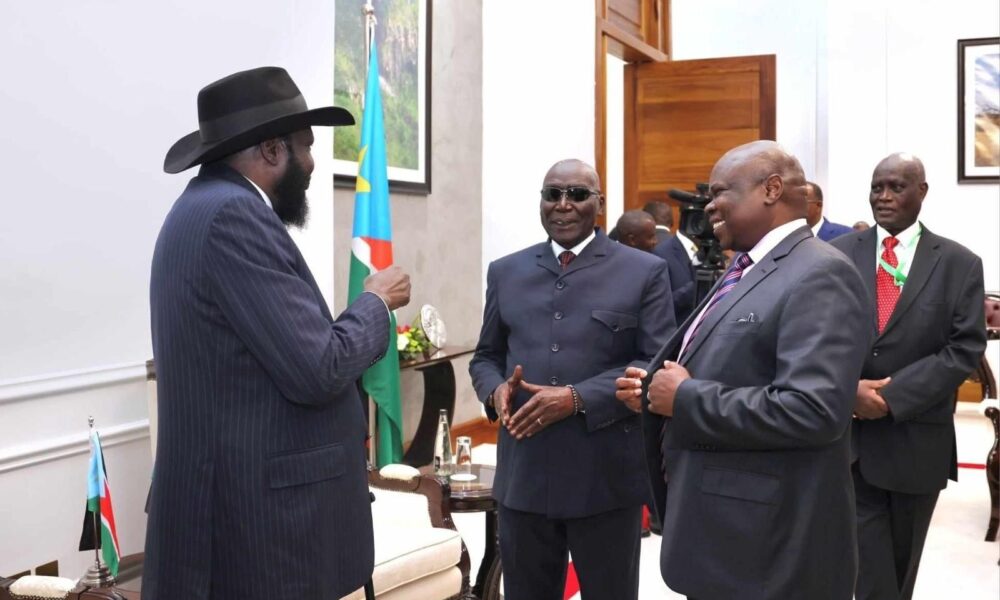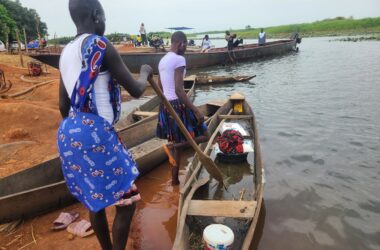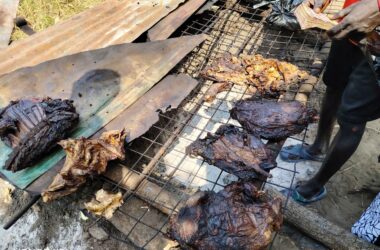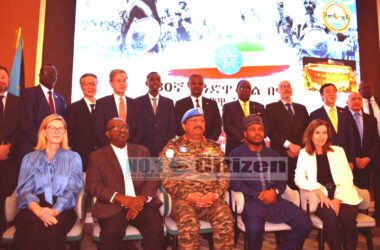By Bosco Bush
President Salva Kiir has urged parties to the Tumaini peace initiative to demonstrate patriotism and adopt a leadership approach as negotiations are set to resume on 6th January.
“The Tumaini Initiative peace negotiating taking place in Nairobi, Kenya will resume on January 6, 2025. I ask our brothers in the opposition to show patriotism and put the interest of the country first,” he said in his New Year’s Address on Tuesday evening.
“I implore us to compromise; to accommodate all the parties for the time has come where leadership is needed more than politics. Politics is cast on positions seeking and self-interest, but leadership is about vision for a better tomorrow, for the next generation,” he added.
The president stated that the transitional government consists of the parties involved in the agreement. Therefore, he does not anticipate excluding any party or isolating some of the existing parties from the agreement.
“The Year 2025 will be a year of unity of purpose towards a comprehensive peace in our nation. In my view, peace is the uncontested factor for the survival of our nation,” he said.
The Tumaini Peace Initiative in Nairobi, Kenya, between the South Sudan government and non-signatories to the 2018 peace agreement, South Sudan Opposition Movement Alliance, were postponed due to lack of consensus following heated debates.
Discussions between the Revitalized Transitional Government of National Unity (RTGoNU) and SSOMA, along with other opposition groups, faced challenges since the relaunch of the talks in early December 2024.
Positives.
The mediators in the statement revealed that the parties and stakeholders agreed on the key agenda items required to reinvigorate the mediation process, which include the relationship between the Tumaini Initiative and the Revitalized Agreement on the Resolution of the Conflict in South Sudan (R-ARCSS), among others.
The mediators also expressed that the second phase of talks came up with a draft framework for the Tumaini Complement to R-ARCSS, which will be used when the talks resume.
Although the postponement of the talks received criticism from the population, with others terming it the end of the talks, the government delegation expressed commitment to the talks, citing that they were only going for a short break to carry out consultation in Juba.
A political analyst who has been keenly following the trends surrounding the Tumaini initiative recently described the deadlock as a manifestation of the transactional behaviour of the political elites rooted in personal and interpersonal political calculus around the throne of power earned through the elites’ power-sharing.
Prof. Dr. Luka Biong, in an opinion piece seen by this outlet, permeates the pros and cons of the Tumaini Peace Initiative in 3 marginal points, namely, new diplomatic shuttling, postponement of talks, and breakdown of talks.
To unlock the deadlock, the analyst suggested President William Ruto and the mediation team need to visit Juba again and ensure clear directives to the delegation of the government about the joint communique and urge the delegation to accept the parallel discussion of concerns raised by the government about the eight protocols and responsibility sharing advanced by the opposition.
However, Prof. Biong said the risk of this scenario is that Kenya may run out of patience in continuing to invest in such a futile mediation with no hope for a credible peace deal to be implemented.




